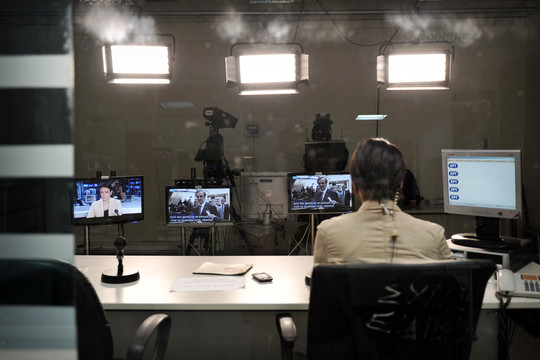The agreement, jointly signed by the journalists’ unions JUADN and ESPIT, will be valid for two years, from January 2024 to December 2025. This update of the previous collective labour agreement includes practical improvements in the working conditions of journalists in the public sector, along with provisions on inclusion, equal opportunities, and harassment policies.
The collective agreement also introduces new measures for the personal protection of journalists in war zones and areas affected by natural disasters and epidemics. It provides financial and social protection for those most in need, such as people with disabilities, new spouses, and new mothers.
‘We welcome and support this new policy initiative being implemented for the first time in Greece. The provision on gender equality is inspired by the IFJ's Rewriting the Story project and its tools to fight gender bias in reporting women in politics,’ said Maria Antoniadou, President of JUADN.
JUADN is involved in the IFJ-led and EU-funded project called Rewriting the Story, which aims to improve journalism coverage of women in politics. Activities included organising training for journalists in Greece and participating in an exchange between unions and public service broadcasters’ representatives in the European Union to shift newsrooms towards more gender inclusive mindsets, including in terms of working conditions.
According to the new agreement, Greek newsrooms in public media with more than 50 journalists must form a committee comprising media management and journalists' associations. Meanwhile, media outlets with fewer journalists can appoint ‘Integrity Advisors’. Their job is to ensure the implementation of the gender equality provisions, respond quickly to any incidents of harassment and violence that occur in the newsroom, and mediate the prevalence of working relationships that are free from sexist and abusive behaviour.
In addition, they should monitor and intervene - in an advisory capacity - to guarantee that all genders are equally represented among guest speakers and that language used in broadcasting programmes and journalistic content is free from abusive and sexist stereotypes. In cases of harassment, the commission should also assist complainants by liaising with competent public bodies and experts in the field of mental health.

